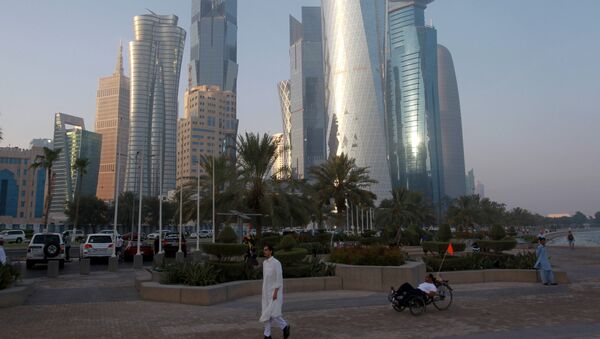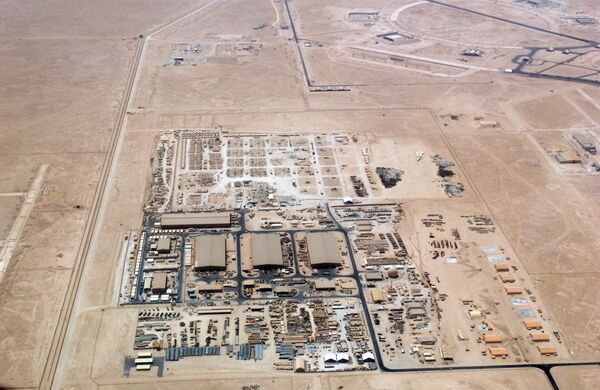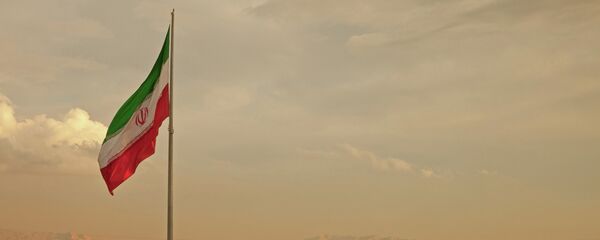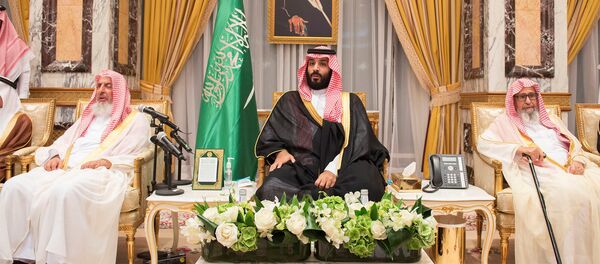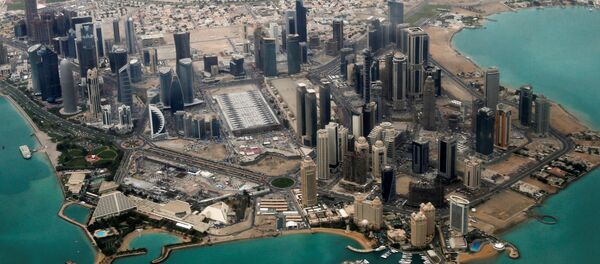On Friday, Qatari broadcaster Al-Jazeera reported that Doha has been presented a list of demands that need to be met to restore ties with its neighbors. The 13-point list demands that Qatar, among other things, cut its ties with Iran, close a Turkish military base on its soil, and shut down Al-Jazeera and its affiliates. Other demands call on Doha to publically denounce relations with Islamist groups, end suspected financing of terrorism, and hand over persons designated as terrorists by Saudi Arabia, the UAE, Bahrain and Egypt.
Speaking to Radio Sputnik, James Dorsey, a veteran, award-winning foreign correspondent, and senior fellow at the S. Rajaratnam School of International Studies in Singapore, said that the list of demands will be likely only to exacerbate the crisis, rather than resolving it.
According to the analyst, the demands are "obviously an attempt to impose Saudi and UAE will on Qatar…It was evident that the only way to solve this crisis was to recognize that the differences are there, and to find a face-saving solution for both [sides]. The fact that these demands are what they are makes a face-saving solution far more difficult."
The demands themselves are also very problematic, the observer noted.
"First of all, they call into question principles which are widely held in the international community [in terms of] freedom of the media, freedom of the press. It's hard to imagine that the United States, which ultimately is going to be an important arbitrator in this whole process, would in any way want to be seen to be party to the closure of media organizations."
On top of that was the Turkish issue, Dorsey said. "Turkey is a NATO member. And it has the sovereign right to choose whether or not it [wants] to establish a military base [in Qatar]. Other countries have military bases in the Middle East and in the Gulf. The United States in particular has its largest military facility in Qatar. Britain and France have military bases in the UAE," the analyst recalled.
Accordingly, the observer noted that based on these and other issues, he couldn't see "how Qatar could accept these demands without effectively becoming a province of either Saudi Arabia or an emirate of the UAE."
"One step would be for Qatar to be expelled from the six nation Gulf Cooperation Council. The GCC can do that, but it is a tricky process, because in effect the organization falls into three groups. [The first is] Saudi Arabia, the UAE and Bahrain, [the latter] a Saudi vassal, Qatar is the other extreme, and in the middle are Kuwait and Oman – which have not broken their relations with Qatar. In fact, Kuwait is mediating, while Oman has helped Qatar circumvent the economic embargo by opening its harbors to Qatari ships."
In any case, the observer noted that Kuwait is also concerned about giving the Saudis too much power, and kicking Qatar out of the GCC would certainly give Riyadh that power.

Dorsey noted that another possibility, at least if media speculation is to be believed, "is that the Saudis and UAE could try and engineer a coup in Qatar and find a more pliable member of the ruling family." Finally, the last option is military invasion. Dorsey said that he couldn't see that happening, "because Saudi Arabia and the UAE would have to have an invitation from the legitimate government in Qatar to do that, and that's obviously not going to happen."
"Obviously, the embargo has an impact," Dorsey noted. "Qatar Airways has lost eighteen of its very lucrative destinations in the Gulf. It faces higher fuel costs and longer flights because it has to circumvent Gulf airspace. The price for its food imports have gone up," having to come by ship and by air rather than across the Saudi border. "The cost of construction goes up, and so on."
"Having said that, Qatar's core revenue comes from gas and oil. Qatar's access to international shipping lanes has not been impeded. Its oil and gas exports have not been impeded. In fact, despite everything, [UAE member] Dubai, which is 40% dependent on Qatari gas, continues to get Qatari gas. And Qatar of course has a substantial financial reserve." In other words, the analyst noted that "Qatar can hold out – maybe not forever, but for a very long time."

The observer recalled that the bulk of the Muslim world, "the major Muslim countries such as Pakistan, Bangladesh, Malaysia, Indonesia, Nigeria…really don't want anything do with this crisis. Turkey of course has been supportive of Qatar. Western nations have called for negotiations. One could interpret the position of the US as having been supportive of Qatar – somewhat critical but nonetheless supportive. You've seen essentially a call for what the State Department called 'reasonable' and 'actionable demands'; a statement by the Secretary of State that banning the Muslim Brotherhood is not realistic; signing of a major arms deal; a joint [US-Qatari] military exercise."
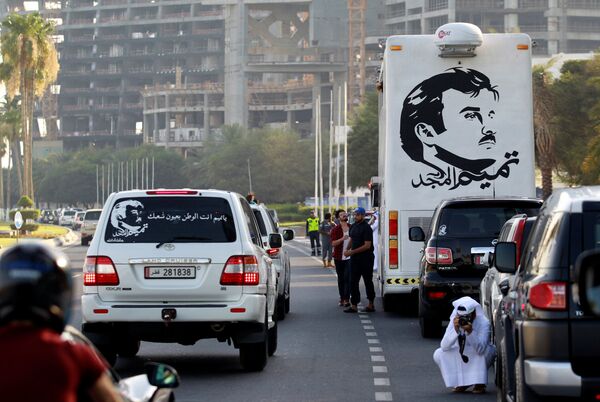
In other words, Dorsey noted that while the international community hasn't lined up on Qatar's side in this conflict, it hasn't exactly lined up with Saudi Arabia and the UAE, either, "and that in effect helps Qatar."
"The Saudis are obviously delighted over Trump's positions on Iran; they're delighted about US support for their war in Yemen and the lifting of restrictions on arms sales which had been imposed by the Obama administration. But nonetheless, for the Saudis, Trump remains a mercurial character; therefore, that's one of the reasons why you're seen a much more assertive policy –perhaps a degree of assertiveness that can backfire. But nonetheless, it is to my mind a reflection of a double-edged approach toward the US," Dorsey concluded.

